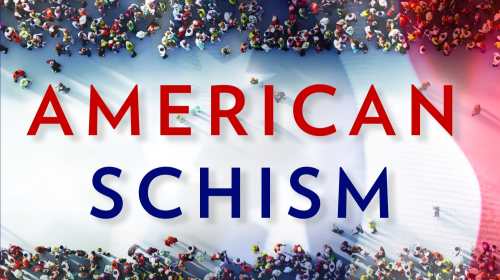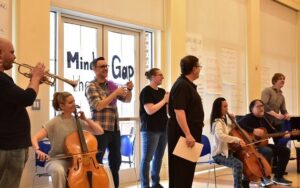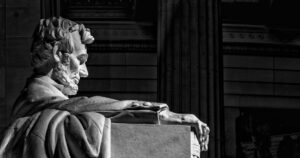What are the historical roots of political polarization in America? Why do Americans hold such dissonant perspectives on the meaning of our core ideals? How might we understand our history to create a more perfect future union?
Ciaran O’Connor hosts Seth David Radwell, author of American Schism, for a wide-ranging conversation on the political, cultural, and epistemological dimensions of our political divide from the Enlightenment to the present moment.
Check out American Schism on Radwell’s website: sethdavidradwell.com/american-schism
Twitter: @braverangels, @ciaranjoconnor, @SRadwell
Listen or watch the podcast below. You can also find it on Apple, Spotify, or wherever you get your podcasts.





1 thought on “Understanding the American Schism | Seth David Radwell with Ciaran O’Connor”
Thank you Braver Angels!
I am writing because I believe your hearts are in the right place, but I — candidly — believe your epistemology is a little behind the times. Ciaran mentioned epistemology, in his podcast with Seth Radwell, as one of the important ways to access issues like the schism Radwell describes, and I think your laudable efforts would be more compelling if you really embraced contemporary epistemology. (I am not an epistemologist, but my PhD dissertation required a working knowledge of the field.)
That podcast frequently referenced “facts” and “reason” and what we should “trust in” and similar notions. But we have moved beyond that — for the same reason that people giving testimony are no longer asked to swear that “they will tell the truth, the whole truth, and nothing but the truth.”
For almost exactly a century, since quantum mechanics overturned classical physics, scientists have understood that goals like facts and Truth were products of a Socratic adventure that took us very far — until it didn’t. Those at today’s cutting edge of advancing our knowledge are heavily invested the roles we humans play in the construction of knowledge. And truths. And realities.
What started in physics quickly spilled over into all the hard and soft sciences. Each field spent a good part of the second half of the twentieth century asking itself how really objective the knowledge it produced was. And the conclusions were that it wasn’t very objective: knowledge is constructed (not discovered or revealed), perspectival, temporary, and infinitely revisable. (Ie, it’s like the U.S. Constitution.)
Modern(ist) artists, too, have embraced this shift. No one asks what a Pollock painting or an Ashbery poem is about; they explore the effect these works have on audiences.
You and Radwell commiserated with each other over our current situation, in which trust in facts has declined. Trust in facts is supposed to decline; they aren’t what we once thought they were.
Braver Angels is, itself, a post-quantum project: in the same way that physicists have to wrangle with object-events that seem to simultaneously be both waves and particles, and answers to questions like “Is it here or there?” that can only be “Yes,” you guys have to ask that we believe that both the right and the left can be simultaneously not-wrong.
If we’re going to break our cycle of schisms (or address the issues Christopher Bail raised on your podcast recently) we will have to engineer a shift in the way we engage and communicate with each other that is as profound as the shift from Newtonian physics to quantum mechanics.
I believe that would simply be a shift in emphasis from making statements to asking questions. A question is to quantum mechanics as a statement is to Newtonian physics. In contemporary science and art, where the starting point is not facts but possibilities, making statements has less currency than asking questions.
I would suggest that politics is lagging here, and that all of its constituencies should up their game to today’s epistemological standards.
Think about how different things would be if our elected officials, and the other thought-leaders we turn to, helped us frame the most productive questions we could be asking each other, instead of making statements at us about what we should do.
The salient point is not that we are a post-truth reality; it is that we are in a post-statement reality.
Plug: I get my 15 minutes of fame at the TEDxHartford event next month to explain how I use poetry to resist the statement-making that is polarizing us and propose question-asking as a mode of engagement take its place.
Looking forward to more of your podcasts!